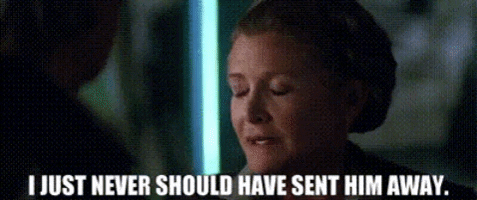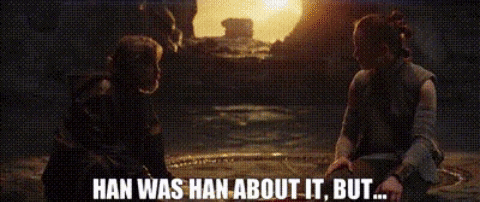Thursday 2 January 2020
After The Wars
Monday 4 November 2019
Just Like Starting Overlook
“There's a thing in AA, something they read in a lot of meetings, The Promises.
Most of those promises have come true in my life:
We'll come to know a new freedom and new happiness, that's True.
But it also says in there:
We will not regret The Past nor wish to shut The Door on it.
And I have no wish to shut The Door on The Past.
I have been pretty upfront about my past.
But do I regret? I do. I do.
I regret the necessity."
Leo walks towards the agents.
As Bartlet waits, we hear the sound of several heavy doors closing.
Bartlet turns back towards the altar.
BARTLET :
[tired]
You're a real Son of a Bitch, you know that?
He slowly walks up the center aisle.
She bought her first new car and you hit her with a drunk driver.
What? Was that supposed to be funny?
"You cannot conceive, nor can I,
The Appalling Strangeness of The Mercy of God,"
says Graham Greene.
I don't know who's ass he was kissing there 'cause --
I think you're just vindictive.
Still, he feels pretty lucky, not least after a near-death experience in 1999.
King was walking down a road near his house when he was hit by a truck and thrown 14ft in the air.
There were no white lights, but it did get him thinking seriously about death.
"Our body knows things, and our brain knows things that don't have anything to do with conscious thought.
And I think that it's possible, when you die, that there is a final Exit Programme that goes into effect.
And that's what people are seeing when they see their relatives or a White Light or whatever it is.
In that sense, there may really be a heaven if you believe there's a Heaven, and a Hell if you believe there is one.
But there's some kind of transitional moment.
That idea that your whole life flashes before your eyes."
He smiles.
"Of course, they say about co-dependents – people who grow up around alcoholics – that somebody else's life does."
It is this moment of transition that Doctor Sleep deals with and the idea, like so many of King's, came from an incidental story in a newspaper.
This one was about
"a cat in a hospice that knows when people are going to die.
He would go into that patient's room and curl up next to them.
And I thought, that's a good advertisement for Death, for the emissary of death. I thought,
'I can make Dan the human equivalent of that cat, and call him Doctor Sleep.'
There was the book."
"The term “codependent” is used to describe how family members and friends might actually interfere with recovery by overhelping.”
Janet G. Woititz’s Adult Children of Alcoholics had come out in 1983 and sold two million copies while being on the New York Times bestseller list for 48 weeks.
The first Co-Dependents Anonymous meeting was held October 22, 1986.


They did.
This didn't go on forever, I knew it was leading somewhere.
And that, at the end, it would show me what I came to see.
FEMALE VOICE:
Rey.
REY:
Let me see them. My parents... please.
I thought I'd find answers here.
I was wrong. I've never felt so alone
KYLO REN:
You're not alone.
REY:
Neither are you.
LUKE:
Rey?
REY:
It isn't too late.
LUKE:
Stop!
REY:
It is True?
Did you try to murder him?
LUKE:
Leave this island now!
LUKE:
I saw darkness. I'd sensed it building in him.
I'd see it at moments during his training.
But then I looked inside...
and it was beyond what I ever imagined.
Snoke had already turned his heart.
He would bring destruction, and pain, and death...
and the end of everything I love because of what he will become.
And for the briefest moment of pure instinct... I thought I could stop it.
It passed like a fleeting shadow.
And I was left with shame... and with consequence.
And the last thing I saw... were the eyes of a frightened boy whose master had failed him.
Ben, no!
If he turned from the dark side, that could shift the tide.
This could be how we win.
Hmm. (laughs)
Wisdom they held, but that library contained nothing that the girl Rey does not already possess.
Skywalker, still looking to The Horizon.
Never here, now, hmmm?
That is The True Burden of All Masters.
Wednesday 29 May 2019
HAN
It's a State of Mind; of Soul, really.
And yet still, there's Hope. "
What's your name, son? Han. Han what? Who are your people? I don't have people. I'm alone. Han... (TYPING) Solo. Approved. Proceed to transport ID 83 for the Naval Academy at Carida. Good luck, Han Solo. We'll have you flying in no time. Read more: https://www.springfieldspringfield.co.uk/movie_script.php?movie=solo-a-star-wars-story
Tuesday 14 May 2019
Han + Leia
Friday 4 January 2019
Nothing's Really Left or Lost Without a Trace - Nothing's Gone Forever Only Out of Place
Nothing's Really Left or Lost Without a Trace - Nothing's Gone Forever Only Out of Place
He's not, actually –
He's One Man against Less than one man :
One Man, One ManBoyChild's
Monomaniacal Nihilistic Obsession
and Luke intends to give CryLow exactly what he wants.....
that will burn the First Order down.
Skywalker's doing this so we can survive.
Wrong Question
(as it turns out)
Completely irrelevant and immaterial
(See What I Did, There?)
Because Luke's apparition of the image of
THE LEGENDARY LUKE SKYWALKER, Jedi Master
inside the fence, behind the barricades of the redoubt
did not require there to be any means of gaining physical entrance
through the worked-out and abandoned caverns of the mine -
There wasn't one until Poe began believing that there must somehow be one, somewhere (and so led the Rebel survivors in an earnest and determined search effort to find it)
and
in working through from The Other End of The Problem,
Please Call Me Rey acted on her earnest belief that her endangered friends, who were trapped and backed into a corner, looking for a way out, would succeed, would make it to the back door, at the . conclusion of their passage under The Mountain
ANY MAN WHO WOULD BE A KNIGHT
AND FOLLOW A KING -
Follow him.
Jedi Master :
The Resistance is Dead.
And when I kill you,
I will have killed The Last Jedi.
Every word of what you just said was wrong.
The Rebellion is reborn today.
The war is just beginning.
Awake at night
Just between the dark
And the morning light
Searching for the things
You used to know
Looking for the place
Where the lost things go
Do you ever dream
Or reminisce
Wondering where to find
What you truly miss
Well maybe all those things
That you love so
Are waiting in the place
Where the lost things go
Memories you've shed
Gone for good you feared
They're all around you still
Though they've disappeared
Nothing's really left
Or lost without a trace
Nothing's gone forever
Only out of place
So maybe now the dish
And my best spoon
Are playing hide and seek
Just behind the moon
Waiting there until
It's time to show
Spring is like that now
Far beneath the snow
Hiding in the place
Where the lost things go
Time to close your eyes
So sleep can come around
For when you dream you'll find
All that's lost is found
Maybe on the moon
Or maybe somewhere new
Maybe all you're missing lives inside of you
So when you need her touch
And loving gaze
Gone but not forgotten
Is the perfect phrase
Smiling from a star
That she makes glow
Trust she's always there
Watching as you grow
Find her in the place
Where the lost things go
Wednesday 29 August 2018
Scavenger
Wednesday 22 August 2018
My Father Said it Would be Fire.
Fire consumes all. Water cleanses.
It separates The Foul from The Pure.
The Wicked from The Innocent.
And That Which Sinks
from That Which Rises.
Noah, The Chosen One :
Shem, The Future :
*wink*
Come tell me about yourself.
Shem, The Future :
Can this destruction be averted?
The Storm cannot be stopped.



